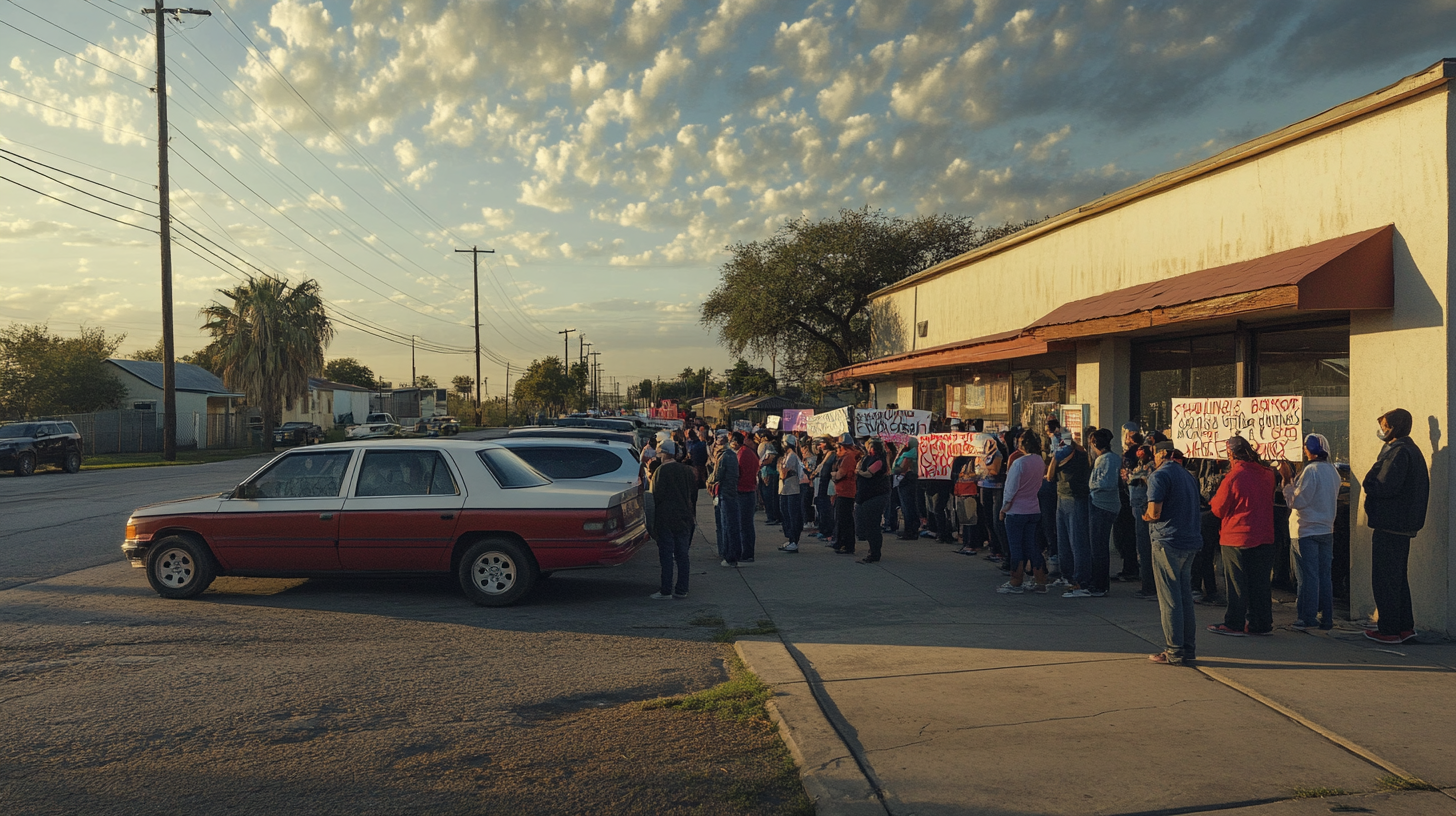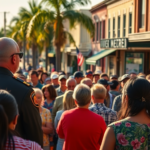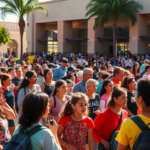Los Fresnos Bakery Raid Sparks Local Debate on Immigration in the Rio Grande Valley
In February 2025, the small, vibrant community of Los Fresnos, Texas, found itself thrust into the national spotlight following a controversial immigration raid at the heart of its local economy. Abby’s Bakery, a cherished staple beloved for both its baked goods and community atmosphere, became the focal point of intense debate around immigration policies in a region with deep cultural connections to its Hispanic heritage.
The Raid that Shocked Valley Residents
On a routine February morning, tranquility was shattered as Homeland Security Investigations (HSI) agents descended upon Abby’s Bakery, detaining its owners, Leonardo Baez and Nora Avila-Guel, along with eight employees. The couple, who are legal U.S. permanent residents, were accused of harboring unauthorized workers, a charge that poses the grave risk of deportation. Six of the bakery’s employees were found to be in the U.S. on visitor visas but did not hold work permits, a situation that intensified the legal challenges facing the bakery.
The arrests and subsequent closure of Abby’s Bakery sent ripples of disbelief through Los Fresnos, a town where the bakery served not just as a business but as a community hub. For many, it was where neighbors gathered over campechanas to share stories and celebrate milestones, making its sudden shuttering akin to losing a piece of home.
Community Reactions to Immigration Enforcement
The events at Abby’s Bakery have uncovered a deep well of community support for the owners and their workers, as residents grapple with the broader implications of the immigration crackdown in their midst. Monsignor Pedro Briseño of St. Cecilia Church, a frequent visitor of the bakery, shared his distress over the situation, highlighting how immigration enforcement disrupted lives entwined with the community fabric. “It’s not just about pastries,” Briseño emphasized, “it’s about the connections and support systems built around them.”
Citizens of Los Fresnos, like Esteban Rodriguez, have expressed sympathy for the bakery owners, arguing that Baez and Avila-Guel were more like benevolent figures helping those in need rather than criminal facilitators. Rodriguez remarked, “When people needed a place, they offered it. It felt more humane than illegal.”
The protests that followed the arrests underscored the shifting sentiments in Cameron County, a region that has witnessed notable swings toward GOP candidates in recent elections. While there is general bipartisan support for deporting those with criminal records, the case at Abby’s Bakery has raised questions about policy nuances affecting those without such backgrounds, highlighting a divide in public sentiment.
A Microcosm of Broader Immigration Issues in South Texas
The developments in Los Fresnos reflect larger tensions within the Rio Grande Valley concerning immigration practices under the Trump administration. In his second term, President Trump’s policies have leaned toward aggressive deportations, often encompassing individuals like those at Abby’s who lack criminal records but are nonetheless ensnared in enforcement efforts.
Mark W. Milum, the city’s manager, noted the potential fiscal implications of losing such a beloved establishment. “Abby’s isn’t just a bakery; it contributes significantly to our local tax revenue and embodies the cultural richness of our Valley,” Milum explained.
A Return to Norm, Amid Uncertainty
After a temporary closure, Abby’s Bakery reopened, an event met with applause from residents who see their support as a resistance to what some perceive as an overreach in immigration enforcement. The Vega sisters, longtime residents, were among the first to return, finding comfort in restored normalcy and rekindled community spirit. Their account of Baez and Avila-Guel’s kindness, including assisting them in personal crises, encapsulates the human stories that transcend legal allegations.
While Abby’s doors may have opened again, the future for its owners remains uncertain, and possible legal repercussions cast a shadow. However, the bakery’s ability to operate represents resilience and unity amid adversity, demonstrating that community bonds in the Valley are steadfast and unapologetically compassionate.
Shaping the Future: What Lies Ahead?
As the legal proceedings continue, the implications for other local businesses are significant. Concerns loom over whether increased enforcement might deter entrepreneurs wary of potential litigation or community backlash. Nevertheless, Abby’s case may galvanize efforts to rethink immigration policies and enforcement in regions like the RGV, where cultural tapestry and economic survival are intrinsically linked.
To support those directly affected, community resources, including legal aid and immigrant support networks, have become increasingly vital. Valley residents are encouraged to remain engaged, participating in dialogues to influence policy changes that resonate with their collective values and needs.
Abby’s Bakery stands as a poignant symbol of the duality of enforcement and empathy, reminding the Rio Grande Valley of its rich cultural heritage and the complexities of modern policy landscapes. Through the enduring spirit of its people, the RGV continues to navigate challenges with resilience, ready to write its next chapter.







